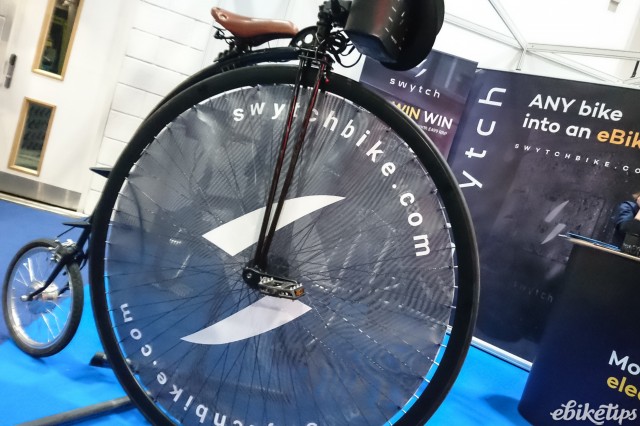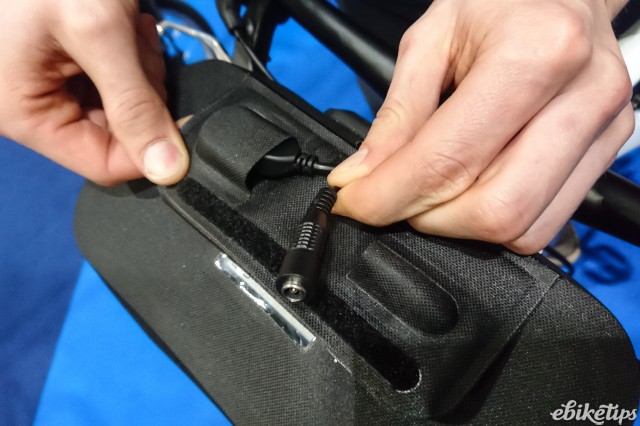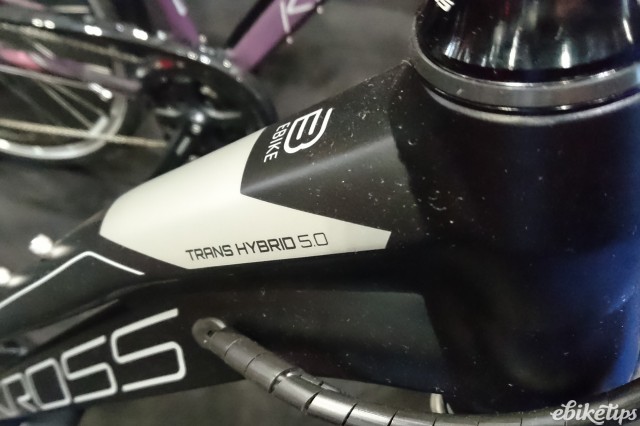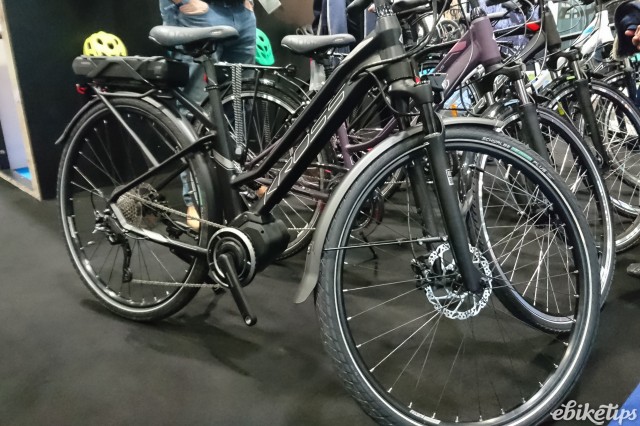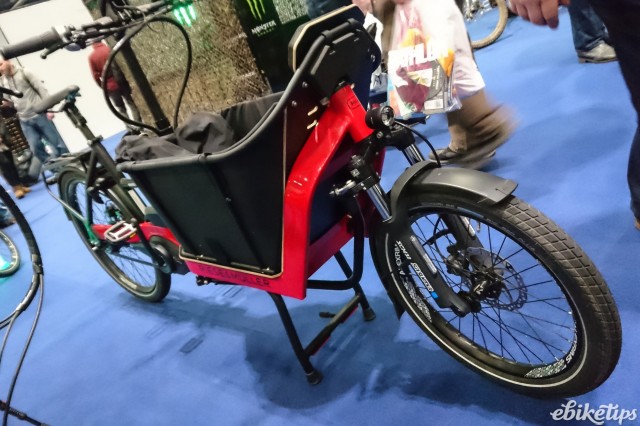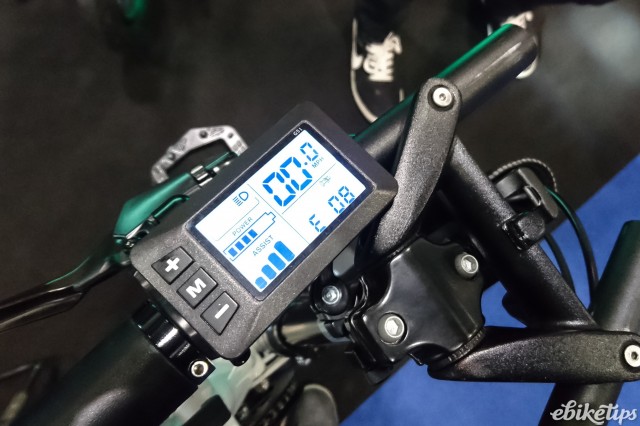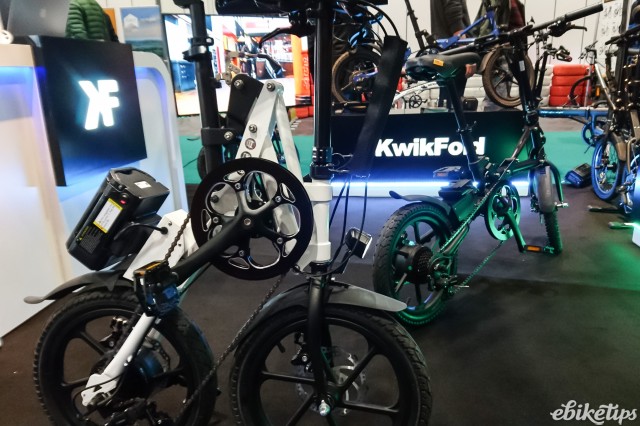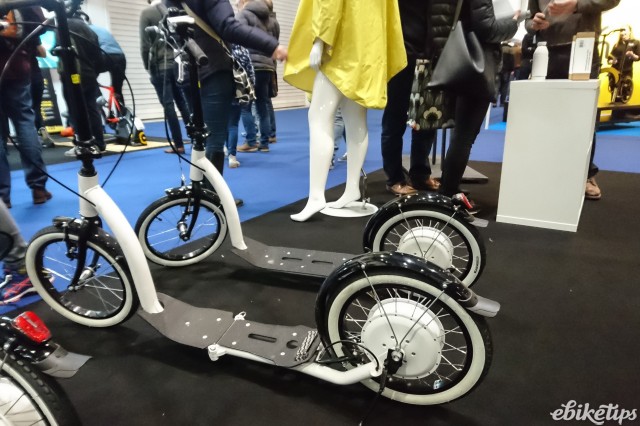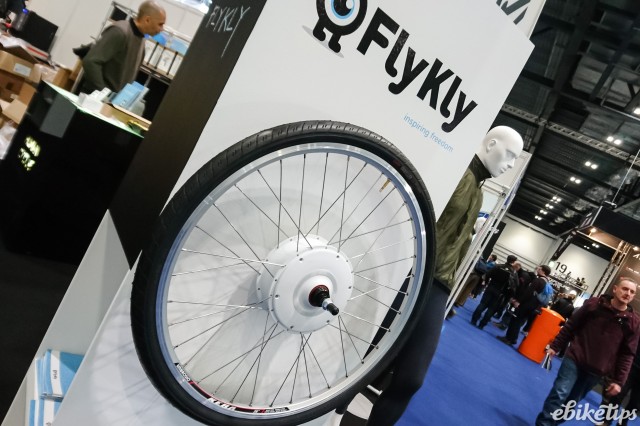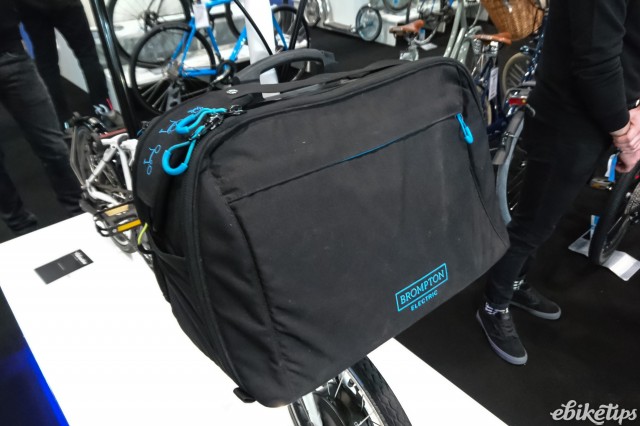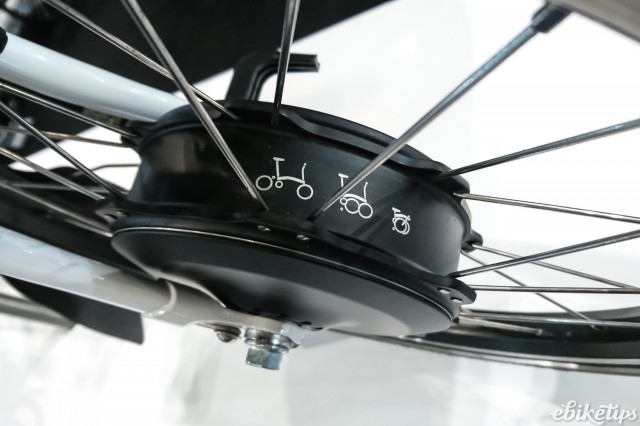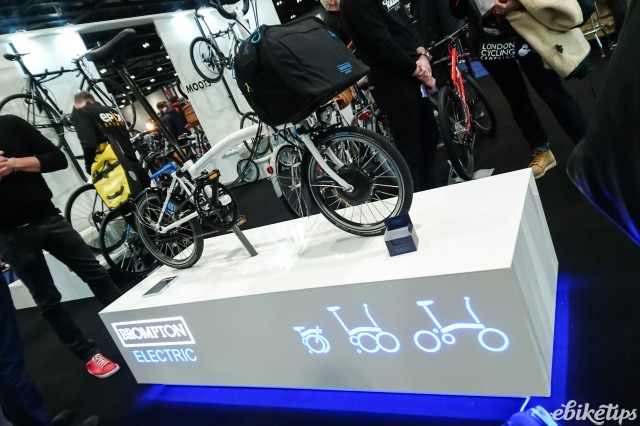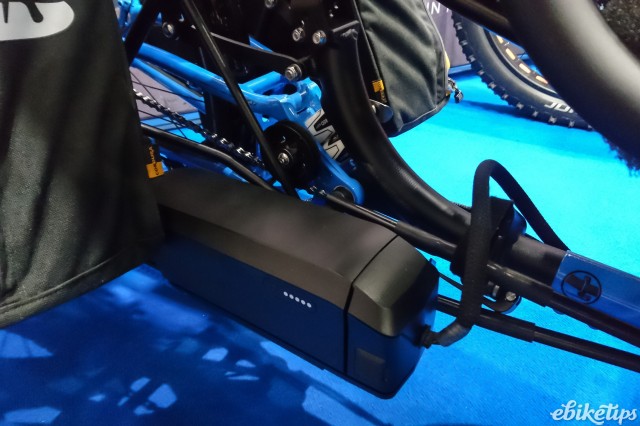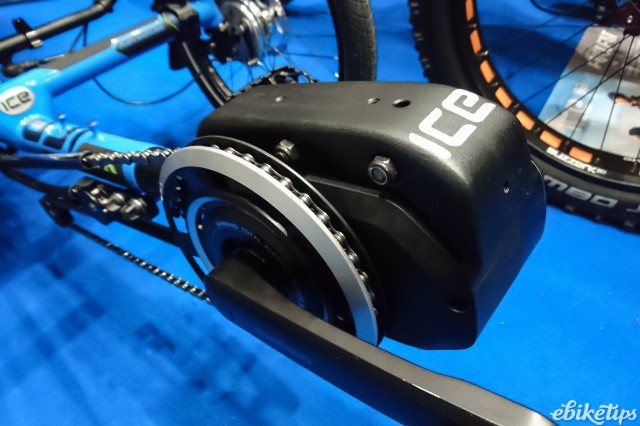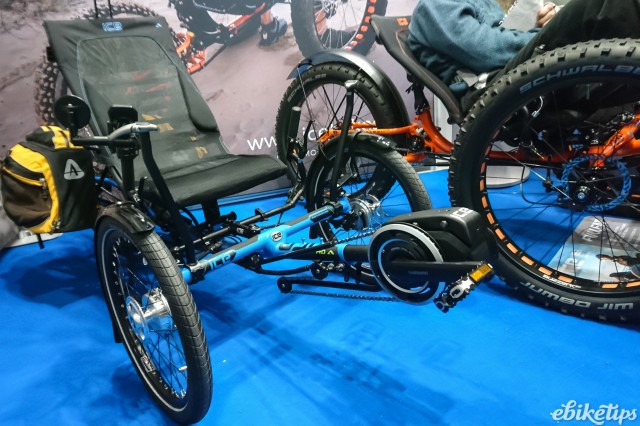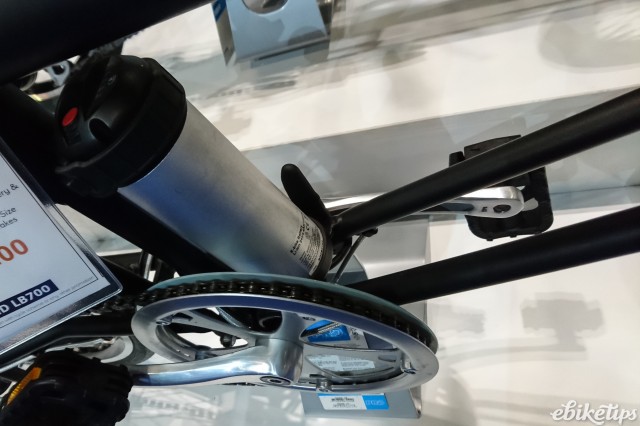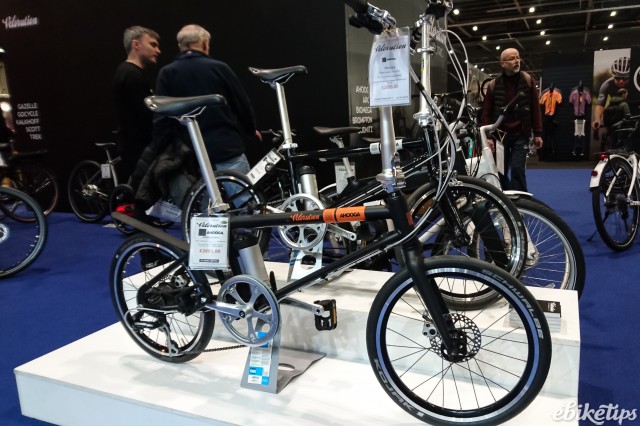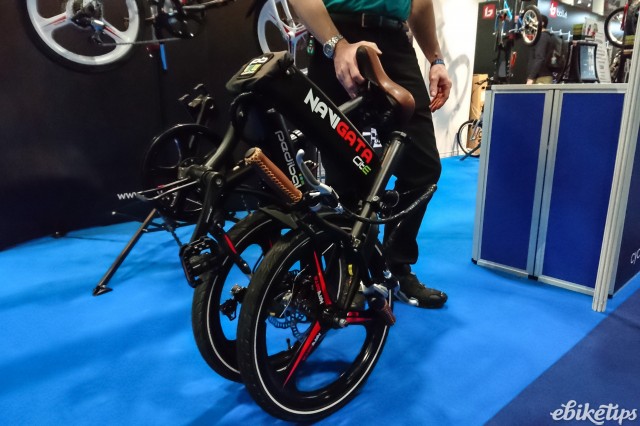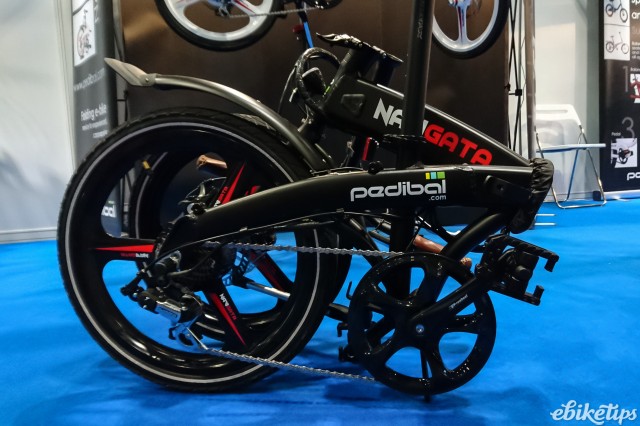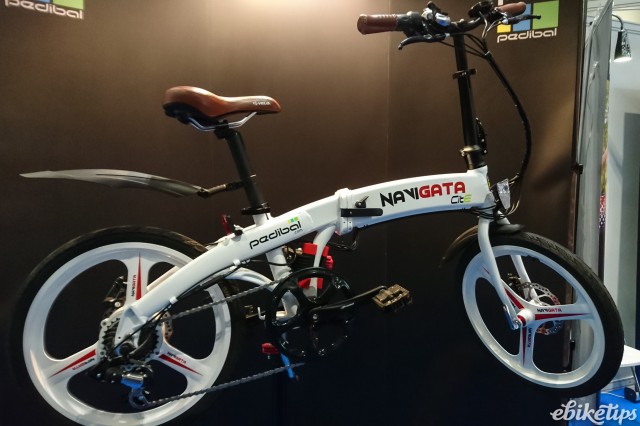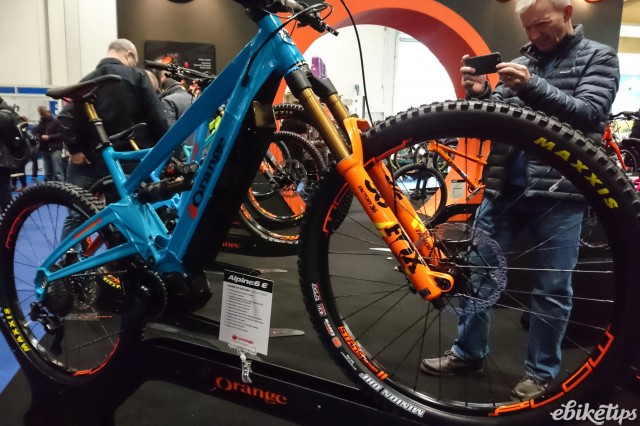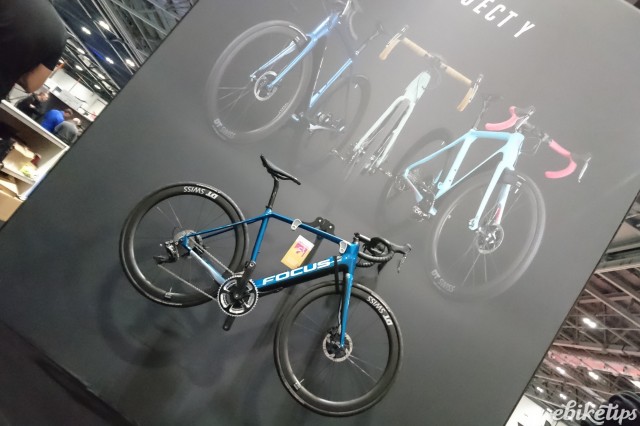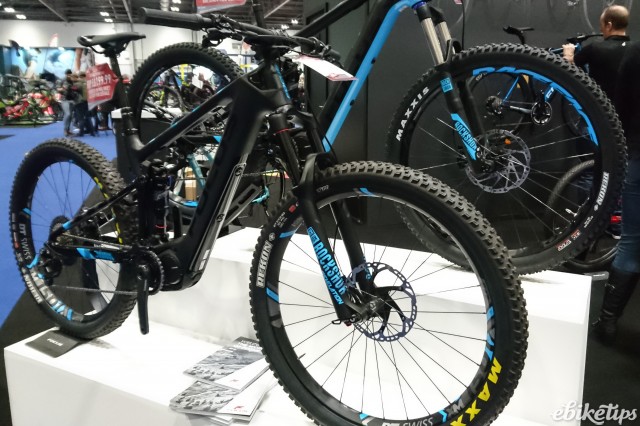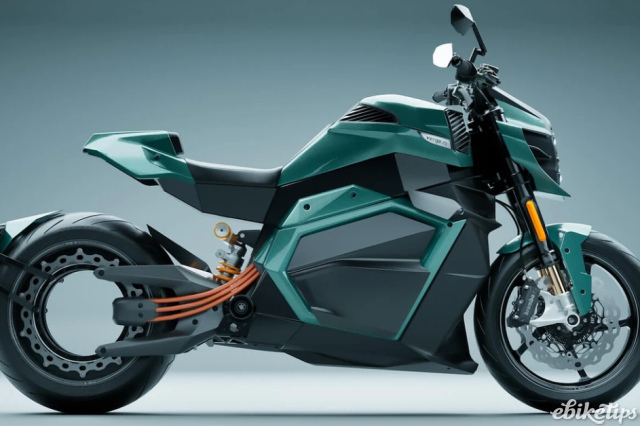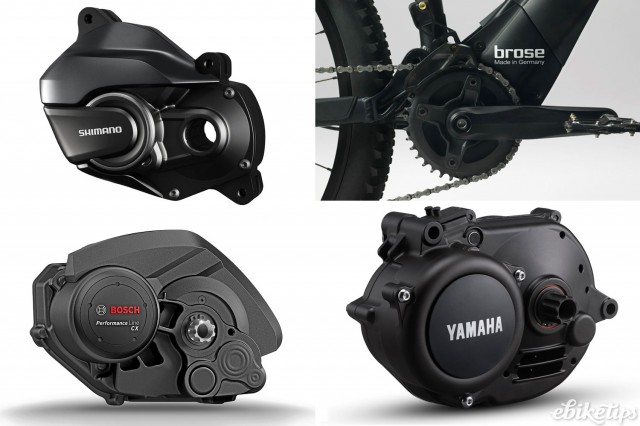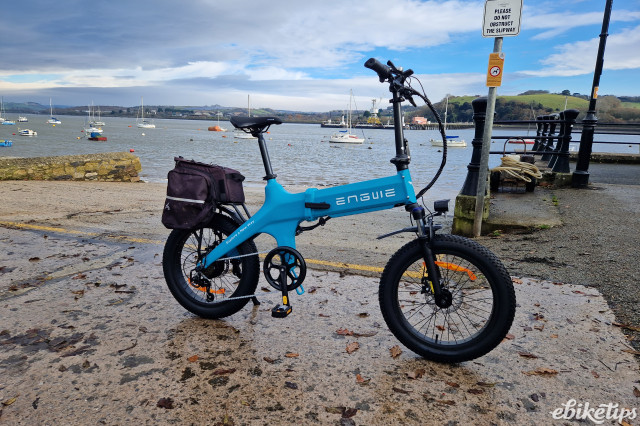Hello! we’re over at ExCel at the London Bike Show today, and we’re pleased to report there’s plenty of e-bike stuff to keep us interested. Here’s a rundown of some of the things we’ve seen today…
An electric penny farthing? An electric anything, that’s the basic premise of the Swytch system. Their crowdfunder shifted over 1,000 kits and bikes, and now they’re busy commuting to the far east to make sure they all get made; shipping to the first backers will begin in April.
There’s been a few tweaks to the system since we saw it last. The LCD and bag cover have been redesigned, and the USB and charging ports sit in a flap at the back of the bag so they’re easier to access: before you had to open up the bag. The new injection moulded (as opposed to 3D printed) handlebar mount is stronger too.
Focus had their Project Y road bike on display. It’s still the Project Y because they haven’t decided on a name for the production bike, or if they had they wouldn’t tell us what it was. If you’re not familiar with this bike then they first showed it at Eurobike last year: it’s an all-purpose road/gravel frame with the removable Fazua motor system, and Focus claim an all-in weight of this high-spec build of about 12.5kg. The motor and battery can be removed and just the gearbox left in place, which would take the non-powered weight to around 9kg.
The Focus Jam2 comes as a carbon bike now, the Jam2 Carbon Plus. It’s not cheap, at £6,199, but it’s certainly a looker. Focus have a piggyback battery available for the Jam2 – you fit it underneath the top tube – which doubles the range under power.
We recently reviewed the Riese & Muller Packster 60 cargo bike, which is a lot of fun but a big old beast. It was interesting to be able to compare the Packster 40, which sacrifices a bit of the load space for a more compact package. It’s noticeably narrower and that might mean you’ve got a better shot at getting it in the shed; There’s still room for a child or a week’s worth of shopping in the hopper though.
The Kwik Fold is an interesting bike. It’s not a traditional fold at all: the bike sort of concertinas up into a narrow, tall package you can push around easily. This new version has had the fold mechanism redesigned and it’s super-quick to fold up, taking just a few seconds to squeeze the frame and swing in the bars. The standard bike is less than £500, with the electric version shown here adding a battery, LCD controller and rear hub motor for a £1,168 all-in price.
Also folding, and not especially expensive, is the Pedibal Navigata Cit-E, which retails for £999. It’s on its second incarnation and Pedibal have redesigned the fold slightly so that the wheels line up and are held together by magnets; they’ve also added a stand under the bottom bracket that the bike sits on neatly when folded.
It’s designed so you can wheel it around when it’s folded and Pedibal claim a range of up to 60km.
This Ahooga folding bike on the Velorution stand is a bit pricier, at £2,695. Its main claim to fame is its light weight: just 13kg with the motor system and 10kg without. Two different sized batteries are available, for a 50km or 75km claimed range.
That bike is a similar weight (and price) to the Brompton Electric, which will cost from £2,595 to £2,755 depending on the spec you choose. At the moment it’s on pre-order and you can reserve one for £200.
The battery lives in a front mounted bag (in a similar way to the Swytch system) and the bag can be carried separately to make the bike easier to handle when it’s folded.
That’s enough tiny bikes. At the other end of the spectrum is this beast. ICE Trikes make a range of three-wheelers, from racing models to fat-tired off-road explorers, and nearly all of them can now be fitted with a Shimano STEPS motor for a helping hand on the hills.
Luckily for ICE the addition of a motor is pretty straightforward on a trike: remove the boom with the bottom bracket on and stick a motor there instead.
Obviously that’s not the whole job: the battery is neatly tucked away behind the seat and the electrics are tidy. You can spec either this E6000 motor or the more powerful E8000 mountain bike unit, and depending on what drivetrain you link it up with, it’ll add between £1,600 and £3,000 to the cost of your trike.
Kross might not be a brand you’ve come across. They’re Polish and assemble all their bikes in the EU. This Trans Hybrid 5.0 also has a Polish-built frame, so it’s a fully European product. This build of the Trans Hybrid comes in at £3,000 and there’s a £2,300 bike that uses the same Shimano STEPS motor and frame but with a lower-spec transmission and suspension fork.
Kross sell through independent bike dealers in the UK (mostly in the North right now) and we’re hoping to get one in for review soon.
FlyKly were showing off their powered wheel at the show. It’s a new version of the wheel that’s based on the Zehus Bike system we’ve seen before, with the motor, batteries and control unit all sealed within the hub body.
The hub can be built into wheels of nearly any size, so like the Swytch system you can be a bit creative in terms of what you power; FlyKly had a fleet of scooters, which we’re itching for a go on.
One of the nicest-looking e-MTBS at the show was the Orange Alpine6 E Factory; it’s probably one of the most expensive too, at £7,500. You’re getting some kit for that though: a Shimano E8000 motor, XT Di2 electronic transmission and a Fox 36 Factory fork, all bolted on to a UK-made 160mm travel frame. And if you don’t like it in blue, there are nine other colour options available.
There’s plenty more e-bike stuff on show, but that’s all from us for now - Make sure you come over to ExCel this weekend if you can, there’s an e-bike test track where you can try out a whole range of bikes and plenty more to see on the non-powered side.
